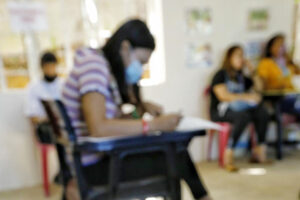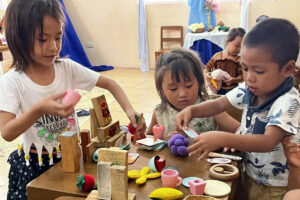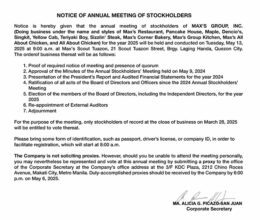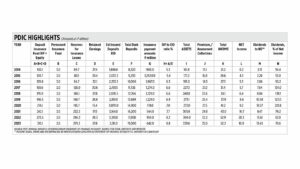57% disapprove political families gunning for multiple Senate seats

ALMOST six out of ten Filipino voters believe it is unacceptable for multiple candidates from the same political dynasty to run in the same Senate election, according to a recent WR Numero survey published on Thursday.
The Philippine Public Opinion Monitor, conducted by the non-partisan research firm in February 2025, revealed that 57% of the respondents disapproved of political families fielding multiple Senate candidates in the same race, while only 24% found it acceptable. The remaining 20% were undecided.
A similar sentiment was observed for local races, with 55% opposing the idea of family members simultaneously running for mayor, governor, or district representative. Meanwhile, 28% expressed approval, and 17% were uncertain.
While opposition to simultaneous bids was evident, the survey found that Filipinos were more open to political dynasties when candidates ran in different election cycles.
A majority (51%) found it acceptable for a family member to seek office after another relative’s term ended, compared to 32% who opposed the idea. Only 16% were unsure.
Opinions on the extent of dynastic influence in the Senate were mixed. If 10-20% of Senate seats were held by political families, 41% of Filipinos found this acceptable, while 31% disagreed, and 28% were unsure.
However, if dynastic politicians occupied 80-90% of the Senate, public opinion was more divided — 39% opposed, 35% approved, and 26% remained uncertain.
The survey also noted changing public attitudes toward political dynasties. While 44% of respondents still found dynasties acceptable, the same percentage believed they were more prone to corruption.
This marked a shift from WR Numero’s September 2024 survey, where 56% found political dynasties acceptable and 50% associated them with corruption.
When asked to name a political family that prioritizes personal interests over public welfare, 42% of respondents were unable to specify one.
However, those who identified political families who value personal interests, most mentioned the Marcoses (19%), Dutertes (10%), Villars (3%), Aquinos (2%), and Binays (2%).
The WR Numero survey, conducted from Feb. 10 to 18, included face-to-face interviews with 1,814 Filipinos aged 18 and older. It has a ±2% margin of error at a 95% confidence level.
The upcoming midterm elections on May 12 will determine the composition of the Senate, House of Representatives, and local government positions. — Chloe Mari A. Hufana




